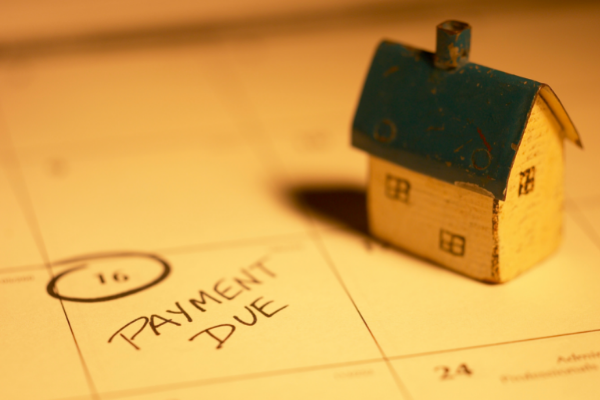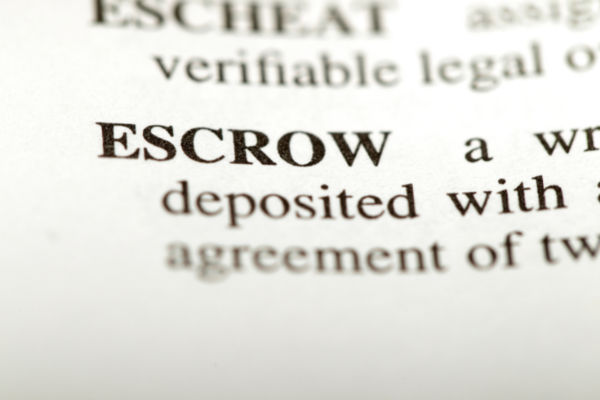 The Federal Reserve’s Federal Open Market Committee considered easing monetary accommodations implemented in response to stronger economic conditions according to its post-meeting statement issued November 3. The Fed started making trillions in monthly bond purchases when the pandemic started but slowed its purchasing pace to $120 billion per month in June 2020. The Fed will soon reduce its monthly bond purchases to $105 billion monthly.
The Federal Reserve’s Federal Open Market Committee considered easing monetary accommodations implemented in response to stronger economic conditions according to its post-meeting statement issued November 3. The Fed started making trillions in monthly bond purchases when the pandemic started but slowed its purchasing pace to $120 billion per month in June 2020. The Fed will soon reduce its monthly bond purchases to $105 billion monthly.
The Fed said it will continue to purchase bonds until the economy makes “substantial progress” toward its legally mandated goals of achieving two percent inflation and maximum employment. Supply shortages and high demand for goods caused by the pandemic have impacted the overall economy, but labor markets have suffered disproportionately. Pandemic-driven quits and retirements have left many job openings that remain unfilled. Service-related jobs in hospitality and travel have been especially hard-hit as consumers continued to stay home.
Fed Calls High Inflation “Transitory”
Federal Reserve policymakers continued to call current higher-than-expected inflation “transitory,” but did not explain how long high inflation is expected to last. Supply-chain logjams continued to negatively impact supply and demand for goods and services; in some cases, high demand and short supplies drove inflation higher: “Inflation is elevated, largely reflecting factors that are expected to be transitory. Supply and demand imbalances related to the pandemic and the reopening of the economy have contributed to sizable price increases in some sectors.”
FOMC members did not raise the current benchmark interest rate range of 0.00 to 0.25 percent, but financial markets expect two or more rate hikes in 2022.
Fed Chair Expects Inflation to Remain High into Mid-2022
Fed Chair Jerome Powell commented on high inflation during a press conference given after the FOMC post-meeting statement: “Our baseline expectation is that supply chain bottlenecks and shortages will persist well into next year and elevated inflation as well.” Chair Powell continued: “As the pandemic eases, supply chain issues will abate and growth will move up. As that happens, inflation will decline from today’s elevated levels.”
Mr. Powell further commented that he expected labor markets to strengthen as the delta variant of the covid virus continues to decline.
 Curb appeal, or how your home looks from the street, is an essential part of preparing to sell your house. It’s also where comparison with your neighbors’ homes is inescapable which poses a problem if you’re both on the market. Read on for five ways to boost your own curb appeal.
Curb appeal, or how your home looks from the street, is an essential part of preparing to sell your house. It’s also where comparison with your neighbors’ homes is inescapable which poses a problem if you’re both on the market. Read on for five ways to boost your own curb appeal. There are many people who are thinking about buying a home for the first time. Even though this is an exciting experience, there are also people who develop anxiety when purchasing a home. This is a major financial decision, and it is critical to get it right. What do people need to do if they want to overcome anxiety as first-time homebuyers?
There are many people who are thinking about buying a home for the first time. Even though this is an exciting experience, there are also people who develop anxiety when purchasing a home. This is a major financial decision, and it is critical to get it right. What do people need to do if they want to overcome anxiety as first-time homebuyers? Purchasing a home is a major decision, and it could be the most expensive financial transaction somebody ever makes. Therefore, it is important to get this right. One of the biggest hurdles for a new homeowner is coming up with enough money for the down payment. A lot of people believe they require 20 percent down to purchase a home. Saving this amount of money can be overwhelming, and some people are wondering, is this really necessary? There are several key points to keep in mind.
Purchasing a home is a major decision, and it could be the most expensive financial transaction somebody ever makes. Therefore, it is important to get this right. One of the biggest hurdles for a new homeowner is coming up with enough money for the down payment. A lot of people believe they require 20 percent down to purchase a home. Saving this amount of money can be overwhelming, and some people are wondering, is this really necessary? There are several key points to keep in mind.  Last week’s economic reports included readings on home price growth from S&P Case-Shiller Home Price Indices, data on new home sales, and the University of Michigan’s Consumer Sentiment Index. Weekly readings on mortgage rates and jobless claims were also published.
Last week’s economic reports included readings on home price growth from S&P Case-Shiller Home Price Indices, data on new home sales, and the University of Michigan’s Consumer Sentiment Index. Weekly readings on mortgage rates and jobless claims were also published.  The idea of an idyllic beachfront home is appealing for many people, but there are a number of factors involved in this type of home purchase that should be considered before getting serious. Whether it’s a home to live in full time, or a vacation property with investment potential, there are a number of issues to take note of. So, if you’re on the fence regarding waterfront property, here are some things you should keep in mind if beach life might be right for you.
The idea of an idyllic beachfront home is appealing for many people, but there are a number of factors involved in this type of home purchase that should be considered before getting serious. Whether it’s a home to live in full time, or a vacation property with investment potential, there are a number of issues to take note of. So, if you’re on the fence regarding waterfront property, here are some things you should keep in mind if beach life might be right for you. Closing on a new home is exciting and many people view their closing date as the finish line; however, even after closing a new home, there is still a lot that has to happen. What do new homeowners need to do after closing on a new home?
Closing on a new home is exciting and many people view their closing date as the finish line; however, even after closing a new home, there is still a lot that has to happen. What do new homeowners need to do after closing on a new home? When someone is looking at purchasing a home, they usually focus on the purchase price of the home and the potential monthly payment. At the same time, there are other costs that need to be included as well. This includes home insurance and real estate taxes.
When someone is looking at purchasing a home, they usually focus on the purchase price of the home and the potential monthly payment. At the same time, there are other costs that need to be included as well. This includes home insurance and real estate taxes.  Just because you live in a small space doesn’t mean your home needs to feel cramped. There are several renovations that are popular among interior designers to make a space feel larger. Incorporate them into your own home to give it a more open, spacious feel.
Just because you live in a small space doesn’t mean your home needs to feel cramped. There are several renovations that are popular among interior designers to make a space feel larger. Incorporate them into your own home to give it a more open, spacious feel. Last week’s economic reporting included the National Association of Home Builders’ Housing Market Index reports on building permits issued and housing starts, The National Association of Realtors® reported on sales of previously owned homes, and weekly readings on mortgage rates and jobless claims were also published.
Last week’s economic reporting included the National Association of Home Builders’ Housing Market Index reports on building permits issued and housing starts, The National Association of Realtors® reported on sales of previously owned homes, and weekly readings on mortgage rates and jobless claims were also published.